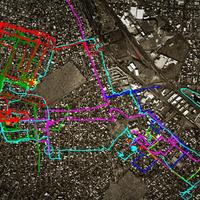
Oct 26, 2016
From awkward moments to practical jokes to serious attempts at battling crime, we ask whether being watched is a good or bad thing.
First, a look at how watching others become one of the most ubiquitous forms of entertainment. Candid Camera is one of the most original – and one of the most mischievous – TV shows of all time. Admirers hailed its creator Allen Funt as a poet of the everyday. Critics denounced him as a Peeping Tom. Funt sought to capture people at their most unguarded, their most spontaneous, their most natural. And he did. But as the show succeeded, it started to change the way we thought not only of reality television, but also of reality itself. Looking back at the show now, a half century later, it’s hard NOT to see so many of our preoccupations – privacy, propriety, publicity, authenticity – through a funhouse mirror, darkly.
Then, a hard look at the trade-off between privacy and safety. In 2004, when casualties in Iraq were rising due to roadside bombs, Ross McNutt and his team came up with an idea. With a small plane and a 44 mega-pixel camera, they figured out how to watch an entire city all at once, all day long. Whenever a bomb detonated, they could zoom onto that spot and then, because this eye in the sky had been there all along, they could scroll back in time and see - literally see - who planted it. After the war, Ross McNutt retired from the Air Force, and brought this technology back home with him. Manoush Zomorodi and Alex Goldmark from the podcast “Note to Self” give us the lowdown on Ross’s unique brand of persistent surveillance, from Juarez, Mexico to Dayton, Ohio. Then, once we realize what we can do, we wonder whether we should.